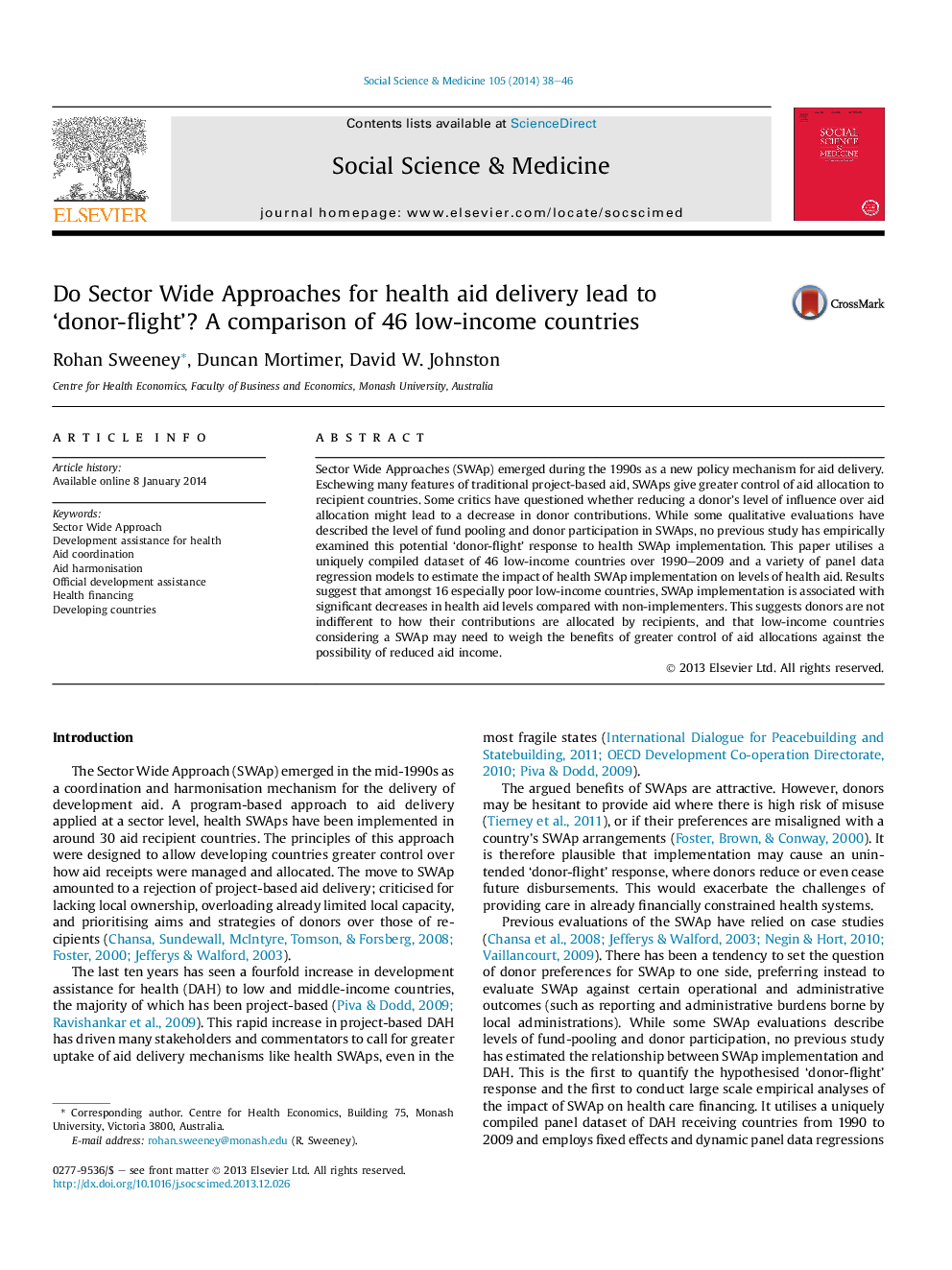| کد مقاله | کد نشریه | سال انتشار | مقاله انگلیسی | نسخه تمام متن |
|---|---|---|---|---|
| 7335620 | 1476063 | 2014 | 9 صفحه PDF | دانلود رایگان |
عنوان انگلیسی مقاله ISI
Do Sector Wide Approaches for health aid delivery lead to 'donor-flight'? A comparison of 46 low-income countries
ترجمه فارسی عنوان
آیا رویکردهای وسیع بخش برای تحویل کمک های بهداشتی منجر به "اهدا کننده" می شود؟ مقایسه 46 کشور با درآمد پایین
دانلود مقاله + سفارش ترجمه
دانلود مقاله ISI انگلیسی
رایگان برای ایرانیان
کلمات کلیدی
رویکرد وسیع بخش، کمک های توسعه برای سلامتی، هماهنگی کمک، هماهنگ سازی کمک، کمک های رسمی توسعه، تامین مالی سلامت، کشورهای در حال توسعه،
موضوعات مرتبط
علوم پزشکی و سلامت
پزشکی و دندانپزشکی
سیاست های بهداشت و سلامت عمومی
چکیده انگلیسی
Sector Wide Approaches (SWAp) emerged during the 1990s as a new policy mechanism for aid delivery. Eschewing many features of traditional project-based aid, SWAps give greater control of aid allocation to recipient countries. Some critics have questioned whether reducing a donor's level of influence over aid allocation might lead to a decrease in donor contributions. While some qualitative evaluations have described the level of fund pooling and donor participation in SWAps, no previous study has empirically examined this potential 'donor-flight' response to health SWAp implementation. This paper utilises a uniquely compiled dataset of 46 low-income countries over 1990-2009 and a variety of panel data regression models to estimate the impact of health SWAp implementation on levels of health aid. Results suggest that amongst 16 especially poor low-income countries, SWAp implementation is associated with significant decreases in health aid levels compared with non-implementers. This suggests donors are not indifferent to how their contributions are allocated by recipients, and that low-income countries considering a SWAp may need to weigh the benefits of greater control of aid allocations against the possibility of reduced aid income.
ناشر
Database: Elsevier - ScienceDirect (ساینس دایرکت)
Journal: Social Science & Medicine - Volume 105, March 2014, Pages 38-46
Journal: Social Science & Medicine - Volume 105, March 2014, Pages 38-46
نویسندگان
Rohan Sweeney, Duncan Mortimer, David W. Johnston,
